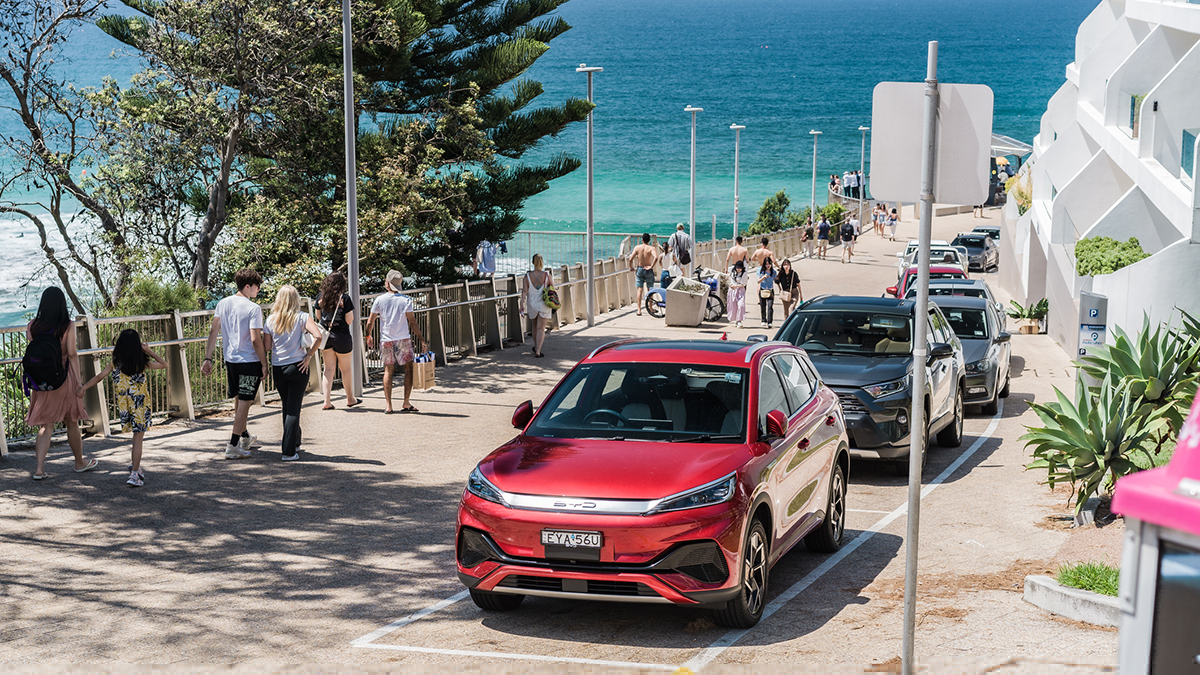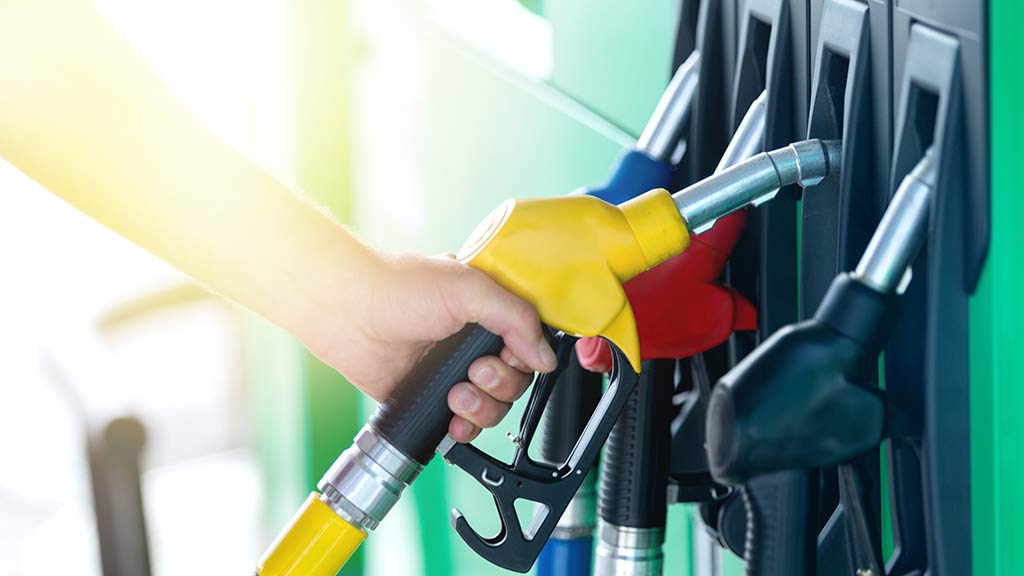Get our independent lab tests, expert reviews and honest advice.
Car share services

Have you considered using a car share scheme, wondering if it’s right for you or would save you money? What if you drive a lot? Will owning your own car be cheaper in the long term?
On this page:
- What is car sharing?
- Car sharing vs car ownership
- Convenience: location and availability
- How does the insurance work?
- Exclusions?
- Benefits of car sharing
- CHOICE verdict
What is car sharing?
Car sharing is different to typical car hire in that you rent the car on an hourly basis. And instead of picking up the car from a central location, car share spots are dispersed around cities (ideally near your home). They’re also becoming popular in new apartment blocks. If you’re planning a weekend trip, full-day rentals are possible and there’s generally a range of vehicle types you can choose from. Just remember: you’ll need to return the car to the same location at the end of your booking.
Car share schemes have been growing at a rapid pace and given that traditional car rental companies such as Hertz have jumped on the bandwagon, it seems car sharing is a profitable business model that’s here to stay. And if the job ads for the US car-sharing giant, Zipcar (owned by the Avis Budget group), are anything to go by, it too is set to make a splash in the Australian market.
The growing number of car shares in Australia includes:
- GoGet – Adelaide, Brisbane, Melbourne, Sydney
- GreenShareCar – Melbourne and Sydney with plans to launch in other cities in the next 18 months (Gold Coast, Sunshine Coast, Brisbane, Perth and Adelaide)
- Hertz 24/7 – Sydney and Gold Coast
- Flexicar – Melbourne (owned by Hertz)
Once you’ve signed up (the majority of car shares have some sort of ongoing membership fees), most companies provide an electronic swipe card that enables you to unlock and lock the car you’ve booked (keys are in the car).
Peer to peer sharing
There are also peer-to-peer car share services such as Car Next Door and DriveMyCar Rentals, which is essentially renting out your neighbours’ car. While the prices can be cheaper, cars may only be available if nearby neighbours have signed up to rent out their vehicles. Car Next Door allows you to book instantly online, by the hour, while bookings on DriveMyCar Rentals can take 28 to 48 hours to be approved and have a minimum seven-day rental period.
Is car sharing for you?
Car sharing will best suit those who:
- live in the inner areas of one of the capital cities
- drive less than 5000km a year
- don’t drive to work
- are committed to driving less and using alternative modes of transport where possible.
Car sharing vs car ownership
At first glance, car sharing may seem expensive. Pricing varies depending on the company – some charge casual hourly rates as high as $15.99, while others charge as little as $5.69 an hour but charge $0.40 per kilometre on top of that. The cost includes petrol, servicing and repairs, and some level of insurance cover.
We did some sums to figure out when car sharing is a more cost-effective alternative to owning your own car. We used car insurer RACQ’s average vehicle running costs for a Toyota Yaris, commonly found in car shares.
The average Australian capital city-dweller drives around 10,000 kilometres a year – about 192 kilometres per week – according to data from the ABS. We used the scenario of someone who drives 20 hours a week for calculating car-sharing costs. In this scenario, car ownership comes out on top with monthly running costs of $537.47, compared with $781.50 for the cheapest car share alternative (Flexicar, in this instance).
But, with car ownership, many of the costs remain fixed, no matter how often you drive. The ethos behind car sharing is about encouraging you to drive less – and the less you drive, the better value car sharing becomes.
We found car sharing can become a cost-effective alternative at around the 5000 kilometre per year mark. Here, car ownership costs around $468 per month compared with $393.67 for the cheapest car share alternative. The savings continue to increase with car sharing the less you drive – at 2500 kilometres per year car ownership is $433.66 per month compared with $199.75 for car sharing.
| 10,000km per year | |
|---|---|
| 192.3km and 20 hours’ driving time each week | |
| Ownership* | $537.47 |
| GoGet | $857.55 |
| GreenShareCar | $1042.38 |
| Hertz 24/7 | $858 |
| Flexicar | $781.50 |
| 5000km per year | |
| 96km with 10 hours’ driving time each week | |
| Ownership* | $468.27 |
| GoGet | $444.31 |
| GreenShareCar | $522.82 |
| Hertz 24/7 | $429 |
| Flexicar | $393.67 |
| 2500km per year | |
| 48km with 5 hours’ driving time each week | |
| Ownership* | $433.66 |
| GoGet | $237.70 |
| GreenShareCar | $263.03 |
| Hertz 24/7 | $214.50 |
| Flexicar | $199.75 |
| 1250km per year | |
| 24km with 2.5 hours’ driving time each week | |
| Ownership* | $416.36 |
| GoGet | $134.39 |
| GreenShareCar | $143.98 |
| Hertz 24/7 | $107.25 |
| Flexicar | $119.58 |
| 10,000km per year | |
|---|---|
| 192.3km and 20 hours’ driving time each week | |
| Ownership* | $537.47 |
| GoGet | $857.55 |
| GreenShareCar | $1042.38 |
| Hertz 24/7 | $858 |
| Flexicar | $781.50 |
| 5000km per year | |
| 96km with 10 hours’ driving time each week | |
| Ownership* | $468.27 |
| GoGet | $444.31 |
| GreenShareCar | $522.82 |
| Hertz 24/7 | $429 |
| Flexicar | $393.67 |
| 2500km per year | |
| 48km with 5 hours’ driving time each week | |
| Ownership* | $433.66 |
| GoGet | $237.70 |
| GreenShareCar | $263.03 |
| Hertz 24/7 | $214.50 |
| Flexicar | $199.75 |
| 1250km per year | |
| 24km with 2.5 hours’ driving time each week | |
| Ownership* | $416.36 |
| GoGet | $134.39 |
| GreenShareCar | $143.98 |
| Hertz 24/7 | $107.25 |
| Flexicar | $119.58 |
| 10,000km per year | |
|---|---|
| 192.3km and 20 hours’ driving time each week | |
| Ownership* | $537.47 |
| GoGet | $857.55 |
| GreenShareCar | $1042.38 |
| Hertz 24/7 | $858 |
| Flexicar | $781.50 |
| 5000km per year | |
| 96km with 10 hours’ driving time each week | |
| Ownership* | $468.27 |
| GoGet | $444.31 |
| GreenShareCar | $522.82 |
| Hertz 24/7 | $429 |
| Flexicar | $393.67 |
| 2500km per year | |
| 48km with 5 hours’ driving time each week | |
| Ownership* | $433.66 |
| GoGet | $237.70 |
| GreenShareCar | $263.03 |
| Hertz 24/7 | $214.50 |
| Flexicar | $199.75 |
| 1250km per year | |
| 24km with 2.5 hours’ driving time each week | |
| Ownership* | $416.36 |
| GoGet | $134.39 |
| GreenShareCar | $143.98 |
| Hertz 24/7 | $107.25 |
| Flexicar | $119.58 |
| 10,000km per year | 5000km per year | 2500km per year | 1250km per year | |
|---|---|---|---|---|
| 192.3km and 20 hours’ driving time each week | 96km with 10 hours’ driving time each week | 48km with 5 hours’ driving time each week | 24km with 2.5 hours’ driving time each week | |
| Ownership* | $537.47 | $468.27 | $433.66 | $416.36 |
| GoGet | $857.55 | $444.31 | $237.70 | $134.39 |
| GreenShareCar | $1042.38 | $522.82 | $263.03 | $143.98 |
| Hertz 24/7 | $858 | $429 | $214.50 | $107.25 |
| Flexicar | $781.50 | $393.67 | $199.75 | $119.58 |
Convenience: location and availability
Price isn’t the only consideration, obviously. Perhaps more important is making sure the scheme has a decent number of cars located near you. Car share schemes are typically located in inner-city areas with little coverage in suburban areas.
You’ll also want to make sure the car share has good availability. Actual utilisation rates of vehicles aren’t easy to come across. Susan Shaheen, an adjunct professor at the University of California, Berkeley, who has researched car-sharing schemes around the world, says the target is around 60–70%, which means the car is in use for around 14.4–16.8 hours per day.
Most car share schemes operate on a ratio of about 30 members to each car, except for Hertz 24/7 which has around double that number of members per car (it doesn’t have any ongoing membership costs though, so member numbers could be artificially inflated). When we asked Hertz 24/7 how members could be guaranteed good car availability its response was: “While it’s hard to guarantee availability, members can reserve a car up to six months in advance”. By comparison, Flexicar (also owned by Hertz) responded saying it has “planned for a members-to-cars ratio that’s low enough to ensure a car will be available when needed”.
Tip
If you’re travelling to another city, you may be able to use your car share scheme there as well. Some car shares even have international affiliates.How does the insurance work?
Much like a rental car, a car share will have an excess anywhere from $1200 to 2000, which you can pay to reduce. Depending on the company, you can pay $1.50 to $2 per hour with a daily cap to reduce the excess to either $0 or $300.
When does your liability start and finish?
Each time you get in the car you’ll need to assess if there’s any damage first. Unless you contact the company to tell them about any issues before you drive off, you’ll be liable for any damage that occurs.
But what about damage that may occur while it’s parked on the street after you’ve finished your booking period? Neither Hertz 24/7, Flexicar or GreenShareCar provided satisfactory explanations for how liability is determined in such circumstances. Hertz 24/7 dodged the question entirely, while Flexicar told us anything reported after your booking period is the driver’s responsibility, suggesting your liability ends only when the next booking begins. GreenShareCar says it “make[s] a decision based on where the damage is and the likelihood of how it may have occurred” and says liability ultimately ends “when a new member books the same car”. By comparison, GoGet told us: “If the car is damaged in between bookings and no one comes forward then we are liable. Members can only be liable for the duration of their booking”.
Exclusions?
We couldn’t find any of the car share services’ insurance policy disclosure statements on their websites making it difficult to know what exclusions in cover there may be.
The main scenarios in which you won’t be covered when it comes to a car share are if you:
- let someone else drive the car
- drive with a blood alcohol level over the legal limit
- put the wrong fuel type into the car
- drive off-road
- don’t inform the car share company of changes to your driving record
- cause damage intentionally or as a result of negligence
- damage the windscreen
- breach the terms and conditions.
Some companies don’t provide personal accident cover, which could leave you in the lurch if you injure yourself.
Tip
Ask for a copy of the policy disclosure statement before you sign up, because if the insurer doesn’t accept the claim, you’ll be responsible for the full cost of repairs and potentially lost profit while the car is off the road.
Benefits of car sharing
Car sharing isn’t just about saving money, there are other environmental and social benefits that come with it. The Car Sharing Association, an industry group with members in 11 countries, says that car sharing is about “encouraging members to drive less often, plan trips more, use other modes of transportation more, and share fuel efficient vehicles when a car is needed”.
Various studies have found that for each shared car on the road, anywhere from four to 13 cars are taken off the road. In addition to this, car sharing has been shown to reduce traffic and parking congestion as well as the number of kilometres travelled as people become more aware of the costs. Car sharing also increases the use of other transport modes such as public transport, cycling, and walking.
CHOICE verdict
While a $10–20 trip to the shops may sound expensive, the reality is, you could be paying the equivalent costs or more to own your own car. Car sharing simply puts us in touch with the actual cost of driving. If, however, you’re driving more than 5000 kilometres per year, you’ll probably be better off owning your own car.




